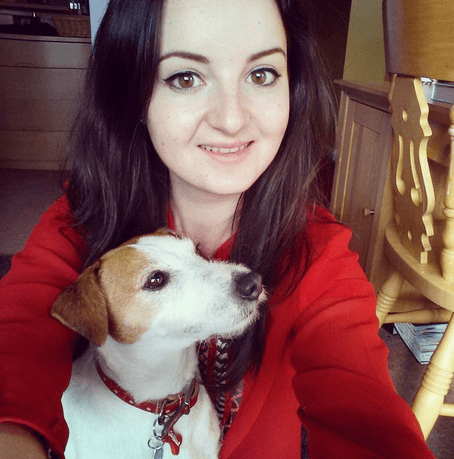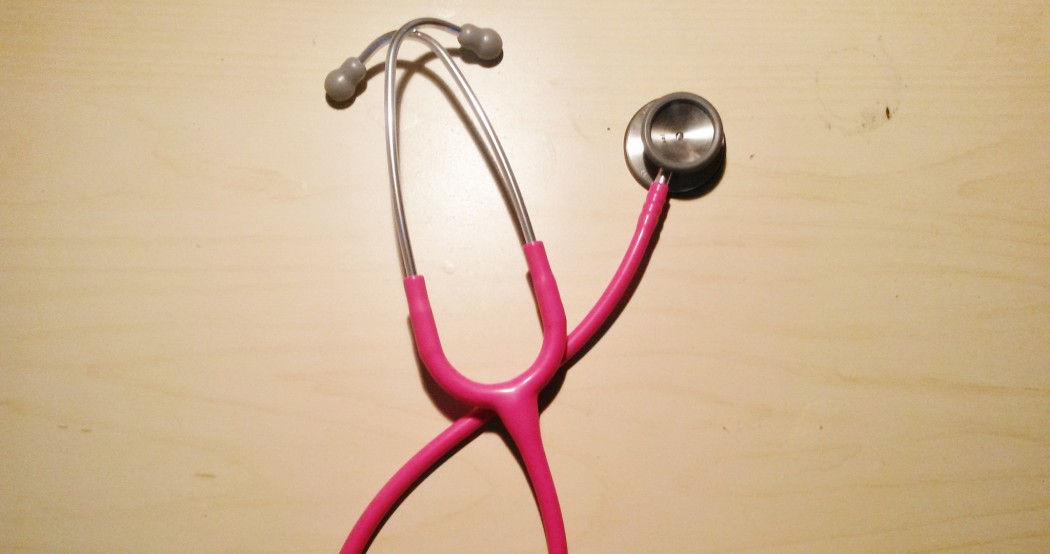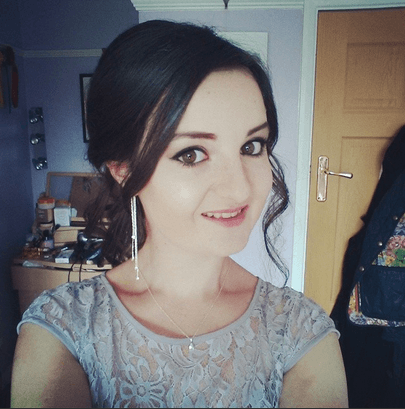It’s time for another Uni Life interview, I can’t believe this week has gone so fast. The purpose behind this new interview series is to give prospective and current students an insight into life at university, what it takes to get there and how to survive.
It’s hard to know what path to take when you’re in college and there’s a lot of pressure to go to university or dive straight into the world of work. I hope that this series will give you a chance to learn from current students about the courses you’re interested in.
This week I’m sharing an interview with the lovely Jenny, a fourth year Medical student. I hope you enjoy the interview and remember to feel free to ask any questions in the comment section below.
What course are you studying at university?
I’m studying Medicine and I’m in my fourth year out of five. It’s a long course but I think it’s worth it.
Did you have to study specific subjects at college to get onto the course?
Yes, I had to do at least two science subjects at A Level – I also did French for a bit of variety, but many people do three sciences.
How did you know this was the right course for you?
I actually spent most of my childhood and teenage years wanting to be a vet but I wasn’t very confident about my chances of getting a place studying veterinary science and so never really dedicated myself to getting the work experience required. I often joke that I applied to medicine because it was the easier option! In reality though I almost didn’t apply for medicine either due to a lack of confidence- I spent weeks and weeks browsing all the healthcare related subjects on UCAS. It was only because we had an excellent teacher at our school who was helping anyone who wanted to apply to medicine, vet science or dentistry that I was brave enough to apply to medicine.
I knew that I wanted a ‘hands-on’ job where I dealt with real things, not numbers or ‘virtual’ things, and something that would make the most of my talents and enjoyment of science.
What do you enjoy most about your course?
The variety and all the experiences I get. I love that I don’t spend all day in university- I get out into the hospital, into GPs surgeries and into the community. I’ve visited people in their homes, I’ve been to a nursery and I’ve even spent a day at a prison.
My course comes with a lot of privileges that I try not to take completely for granted. Simply by introducing myself as a medical student, patients tell some of their most personal things, let me practice examinations on them, allow me to do procedures such as taking blood and be present during their operations.
What do you find most challenging about your course?
I think the fact that there’s not really any flexibility with modules or what content you study – you simply have to do everything! Lots of other courses give you optional modules so you can ‘customise’ your degree to your interests, whereas the closest I get to that is a couple of weeks of student selected components a year. I know I don’t want to be a surgeon or specialise in hearts or bowels or the respiratory system but I still have to study these just as much as the areas I do enjoy.

Are internships easy to come by in your field?
Medicine doesn’t really have internships. My last three years are all clinical years meaning the majority of teaching is delivered in hospital and we spend a lot of time on the wards or in clinics, shadowing doctors and practising skills. If you want to gain extra experience in a particular field, I’ve generally found that most doctors are enthusiastic and encouraging about helping you to arrange additional things in your spare time.
Please tell us about an internship/work experience that you’ve gained something positive from.
I could write so much for this answer based on my clinical experience so far! My favourite placement to date was with a community psychiatric intensive team, sometimes known as a crisis team. They were incredibly welcoming and actually made me feel like part of the team- something that doesn’t always happen. I got to see a lot of acute psychiatric problems in the community and to see how they are managed. I also enjoyed working alongside other professions including mental health nurses and social workers.
Do you have any career plans in mind for when you’ve graduated?
Oh yes! When I graduate I’ll go on to do two foundation years as a junior doctor. These consist of six lots of fourth month rotations in different specialties of medicine. After that I’ll apply for specialty training in an area I’d like to work in. At the moment I’m thinking about psychiatry which would be a six-year training programme. It sounds like a really long time, and it is, but it’s paid work and much like progressing through the rungs of any other career ladder (although maybe with more exams).
Do you take part in any student groups or outside activities?
Up until halfway through my third year I was part of the university riding club and went for a horse riding lesson once a week. Sadly I had to stop because I then moved to a placement in Weston Super Mare so couldn’t get to the lesson. I’m not part of anything else now, medicine keeps me pretty busy and I’m spending most of this year out of Bristol in other areas on placement. That’s not to say that you can’t do other things though if you do medicine!
What do you do in your spare time?
During the week I’m currently living in hospital accommodation, so in the evenings I’ve been relaxing and watching films with friends. I travel back to Bristol at the weekend and might go out for drinks somewhere nice, go out for a meal, go shopping or simply just enjoy spending a bit of time with my housemates in our flat!
What would you’ve liked to know about university life before you started?
I think just to know that university life is what you make of it! There’s no one way it has to be (i.e. freezing cold, always hungover and living off baked beans). Also that university life means more than just studying and uni-related things – for me it was a totally new city, a brand new group of friends and all the opportunities that come with those.
What keeps you motivated?
Seeing doctors doing a really good job and chatting to patients. It can be quite tough to stay motivated when I’m on a placement that I don’t love and there are exams looming and lots of work to do. Luckily spending time in the hospital means I’m always seeing the reasons why I’m putting all this work in, especially if I happen to be with a doctor who clearly loves what they do. Patients are on the whole really lovely and when someone wishes you luck and tells you that they think you’ll make a great doctor, it can be just the boost you need to keep going!
What advice would you offer to prospective students?
Research the course you’d like to do and see how it differs at different universities. Be ambitious and optimistic as well as realistic. Talk to current students. Get work experience and really get involved and think about what you do and don’t like about it.
Finally, what is your go to meal after a busy day of lectures?
Often something like a stir-fry – really quick and easy to make and packed with lots of vegetables!
I want to say a big thank you to Jenny for taking part in this interview. I hope you all found it as interesting and inspiring as I did, it’s fantastic to hear how passionate Jenny is about her course. This interview shows that confidence may not come easily but you have to keep going and push past that barrier to have a shot at what you want in life. It also highlights the the difference a teacher can make if they take a keen interest in the future of their students.
I wish Jenny all the luck in her studies and I hope that one day I’ll be sitting down to interview her at the end of her Psychiatry training. You can find Jenny over on her blog, Twitter, Google+, Pinterest and Instagram.


